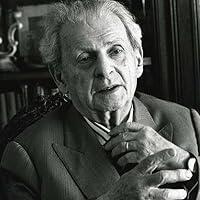
Emmanuel Levinas
关于作者
Emmanuel Levinas was a prominent French philosopher known for his work in ethics, existentialism, and phenomenology. Born in Lithuania, he later moved to France, where he became a significant figure in the intellectual landscape of the 20th century. His philosophical approach centers on the primacy of ethics and the responsibility to the Other, challenging traditional Western thought that often prioritizes ontology and epistemology. Levinas's writings, such as "Totality and Infinity" and "Otherwise Than Being," explore the nature of human relationships and the ethical implications of our interactions with others.
Levinas's work has had a profound impact on a variety of fields, including philosophy, theology, and literary theory. He is often associated with Jewish thought and has drawn from his cultural heritage to inform his philosophical inquiries. His ideas have influenced a wide range of thinkers and have sparked discussions on the nature of self, ethics, and the role of the Other in shaping human experience. Through his reflections, Levinas invites readers to reconsider the foundations of ethical responsibility and the significance of interpersonal relationships in a complex world.